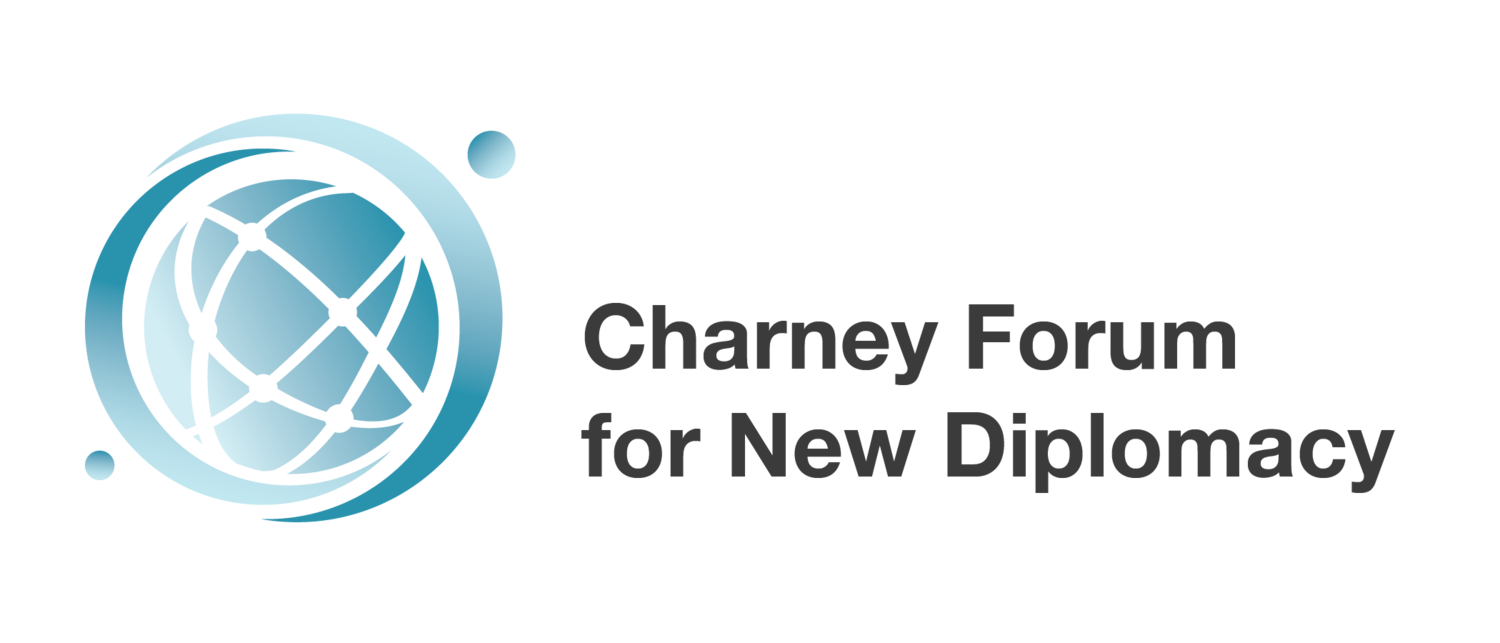The Charney Forum for New Diplomacy, in partnership with the University of Haifa, offers tailor-made programs, providing participants with cutting-edge methodologies and skills to play an active role in the evolving international landscape. Our programs are designed to fit the needs and specifications of all participants, including civil society organizations, multinational corporations, faith-based organizations, students and professionals. Participants receive an official certificate from the University of Haifa and Charney Forum.
Featured Speakers:
Ido Aharoni - Chairman, CFND | Noa Meir - CEO, CFND
Joanna Landau - Founder & CEO, Vibe Israel | Nirit Cohen - HR Strategist, Thought Leader, Blogger
Nadav Tamir - International Relations Advisor, Peres Center for Peace and Innovation
Dr. Liran Antebi - Research Fellow, Lecturer, Consultant | Dr. Yaniv Zaid - Attorney, Economist, International Expert in Persuasion
Core Areas of Expertise:
Globalization and hyper-connectivity created a highly competitive international arena. The competition is not limited to for-profit entities. It takes place between nations, cities, communities, ideas, movements, ideologies, concepts and organizations. Place branding has become a pillar of modern diplomacy. In this class participants will be given insights into the practice of place branding and learn how can a place improve its positioning and uniqueness vis a vis its competition. The case of Brand Israel will be prominently featured.
The Information Revolution is one of the most dramatic revolutions in history, marked by unprecedented levels of participation, content co-creation and accessibility to information. This massive exposure to information has already disrupted major industries, including the practice of diplomacy, even though scarcely researched or discussed. Participants will learn about the impact of the dramatic disruption on diplomacy, policymaking and politics, alongside issues such as the history of classic diplomacy, and the rise of New Diplomacy.
Israel is more than a “Startup Nation”. A world-class creativity hub in all walks of life, the inventive spirit of its people is manifested in every realm: military, science, food, lifestyle and many more. The modern State of Israel represents a unique cultural, social and economic blend, a nation of problem-solvers that gave the world some of its most exciting solutions and inspirational developments. Participants will explore the secret sauce - the unique characteristics that turned Israel into a world famous “Can-Do Nation” – through an overview of the role of creative thinking in economy, politics, diplomacy and business.
Geopolitics & International Relations
Narcissism and Politics: The internet allows self-indulgence like never before. In the eyes of many, induced by technology, narcissism is the epidemic of the 21st Century. Participants will receive a glimpse into the mind of the narcissist and learn about the strong correlation between political life and radically self-centered behavior. Participants will explore ways to effectively deal with narcissistic personalities.
Marketing & Communications
We provide workshops in marketing and communications focusing on these areas:
Digital literacy is the ability to use information and communication technologies to find, evaluate, create, and communicate information, requiring both cognitive and technical skills. In this workshop, participants will learn how to find information, consume, create, communicate and share digital content.
Participants will be given practical tools to navigate the social media space by exploring all online communications channels dedicated to community-based input, interaction, content-sharing and collaboration. This space includes: websites, applications, forums, microblogging, social networking, social bookmarking, social curation, and wikis. In addition, participants will learn how to advocate and communicate using mainstream social media platforms such as Facebook, Twitter, Instagram, LinkedIn, Reddit, Pinterest, and Wikipedia.
No enterprise, organization or cause is immune to crisis. In order to prevent loss, discomfort, embarrassment and damage, a set of guidelines were developed to assist managers to manage crisis. In this workshop participants will learn what steps are necessary before crisis strikes. Participants will be trained how to prepare for crisis. Advanced planning is the key to success.
This workshop addresses the impact of rapid technological changes on different areas of life, technological forecasting and policymaking, and risk management.
Learn about the phenomenon of disruptive innovation, experimenting with technological forecasting, identification of threats and opportunities, and projecting these capabilities on other fields.
Participants are given practical tools to resolve conflicts and disputes of any type:national, territorial, personal, financial, political, or emotional. When a dispute arises, often the best course of action is negotiation and well thought engagement to resolve the disagreement.
People negotiate routinely about all aspects of their lives. In this workshop participants will learn how to adopt a win-win approach to negotiations that nurtures positive and productive relationships toward achieving the desired outcome. In this hands-on workshop participants will be offered a step-by-step guide to effective negotiation, skill-building techniques and better understanding of human interaction.
This workshop will provide tools to explore the geography of the internet with emphasis on smart search and the ability to accurately assess credibility and reliability. Netnography, the mapping and navigation of the web, is key to for understanding of people’s behavior online as well as off-line. Today, users are increasingly active online, and valuable information about their opinions, experiences and behaviors can be retrieved.
This workshop offers participants skills that will enable them to learn the basic terminology of social anthropology, and how to understand people from different cultures.
Participants will improve their cross-cultural communication skills, thus becoming better overall communicators
Media is an integral part of our lives. Participants are offered tools to improve their ability to communicate via various media platforms. The workshop will focus on messaging design, confidence-building, specific mediums (such as print, radio, and online media), understanding media, defining a target audience, designing a pitch, the art of sound bite, interview techniques, dress code and dealing with hostility.

